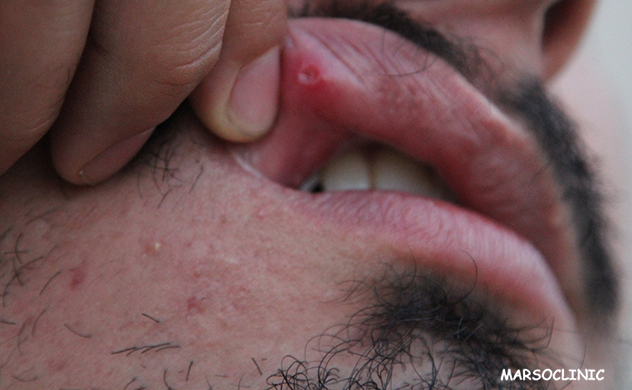If you have excessive salivation and this will bother you.
If you want to know the causes of excessive salivation.
If you had a lot of saliva in your mouth, you would be worried and seek scientific information, Read more.
Doctors have been named the secretion of too much saliva
- Polysalia
- Ptyalism
Increased salivation is not a common sign, but sometimes it is very common. For example, the experience of increased saliva in pregnant women, in other cases, Ptyalism is a less common sign of gastrointestinal disorders, some poisoning, dysphagia, swallowing. Laxatives and some systemic problems should be considered.
In the following, we will learn more about the causes of increased saliva or the factors that will cause palliative care.
what you will read next :
reasons
Why do we sometimes experience increased salivation?
Inflammation of the oral mucosa can be a cause of palliative care.
Sometimes there are sores in the oral mucosa, the presence of these mucosal sores can be the cause of excessive saliva secretion.
People with oral mucosal ulcers generally experience the following in addition to palliative care.
- Sore mouth

- Redness of the areas in the mouth
- Fever
- Swelling in the mouth
- Bad breath
- Decreased desire to eat
Oral ulcer healing may occur spontaneously in a person with ulcers and lesions of the oral mucosa. Most people report spontaneous healing of ulcers and inflammation of the oral mucosa within seven to ten days.
But the important point is that it is very important to know the type of oral ulcer, especially in recurrent cases. Many systemic diseases, some skin and connective tissue disorders such as lichen planus, some autoimmune diseases such as lupus, do not present with oral ulcers.
Oral ulcers in lichen planus can lead to oral cancers and tongue tumors. Therefore, be sure to refer chronic, recurrent, and refractory oral ulcers to a dermatologist.
- Some bacterial infections can be associated with increased saliva:
Treponema pallidum infection associated with clinical syphilis.
Secondary syphilis is associated with mucosal ulcers.
If primary syphilis, usually with a sore called a Chancre (which is a small, painless sore that appears at the site of the initial infection, can be in the mouth, anus, genitals, and penis, the sore disappears without treatment after one month).
If this infection is not treated in the primary phase, it will be obvious that the disease enters the second phase. The spread of untreated infection in the primary syphilis phase leads to secondary syphilis.
Two to eight weeks after the onset of primary syphilis will be the time of onset of secondary syphilis
The most common manifestation of syphilis in the second phase is itchy skin rashes that are often scaly but can be smooth.
Other symptoms of this stage include:
- Fatigue
- Headache
- Lymphadenopathy or swelling of the lymph nodes around the area
- Joint pain
- Wart-like lesions:
- Fever
- Sore throat

- Increased salivation
- Bell paralysis
It is a disorder that is associated with permanent or temporary weakness of the facial muscles.
The cause of facial muscle paralysis is the nerve that controls the facial muscles becomes inflamed and swollen. The exact cause of Bell’s palsy is not yet known.
Bell’s palsy should not be equated with facial paralysis because more important causes such as strokes or intracranial hemorrhage may be associated with facial paralysis.
In Bell’s palsy, one half of your face will fall down or one half of your face may become stiff.
You may not be able to close your eyes or smile on the injured side. In most cases, Bell’s palsy is temporary and transient and the symptoms will not last for more than a few weeks.
Bell’s palsy is usually most common between the ages of sixteen and sixty. The disorder is named after Dr. Charles Bell, a Scottish anatomist who first described the disorder.
Two weeks after a simple, viral cold or infection and inflammation of the ear or eye, symptoms appear suddenly. For example, one morning when you wake up you may notice that half of your face is down or you cannot eat or drink.
Symptoms of Bell’s palsy
The symptoms of Bell’s palsy are as follows:
A person with Bell’s palsy has a very withered face and cannot open or close the eye on the injured side. In very rare cases, both halves of the face may be involved.
The accompanying symptoms will be as follows.
- Dry mouth
- Oral discharge or increased salivation
- Eating Disorders
- Impaired drinking
- Weakness in the face
- Feeling of tightness and tightness of facial muscles
- Inflammation of the affected side of the eye
- Dry eyes
- Sensitivity to sound
- Headache
- Disorder and weakness of the sense of taste
We emphasize that if you have any of the above symptoms, you should not count yourself as Bell’s palsy, stroke, brain tumors can be associated with such manifestations.
Therefore, you must see a doctor immediately in case of these symptoms.
The following can be seen on the affected side of the face:
- Reduce eyebrow movement
- Inability of a person to open or close the eyelid of the affected side
- Fallen eyelid on the affected side
- Loss of the folds between the nose and lips or the nasolabial folds.
- Dropping of the affected side lip
- Salivation
- A viral infection may be the cause of this disorder
- Herpes simplex virus or herpes simplex
- HIV
- Herpes zoster virus, which causes chicken pox and shingles.
- Epstein Barr virus, which is an infectious monoclonal agent.
- Adenoviruses that cause respiratory diseases.
- Influenza type B
- Coxsackie virus, which causes hand and foot disease.
- Rubella or German measles
- Infections such as:
Lyme disease caused by a type of tick bite.
Pregnant women, people with lung infections, people with diabetes, people with a family history of Bell’s palsy are at higher risk than others in the community.
- Pregnancy can be one of the causes of increased salivation.
Excessive salivation usually occurs during pregnancy, there is no need to worry about this condition, if a pregnant woman has nausea, and she is more likely to experience Ptyalism care. These conditions are not permanent. Increased salivation in pregnancy transient and temporary.
2.4 Pregnant women in the first weeks of pregnancy experience excessive salivation.
The second to third week of pregnancy is a common time for the onset of palliative care. This condition persists until the end of the first trimester of pregnancy.
According to a valid study, the following results have been obtained.
Women and girls between the ages of fifteen and twenty-four secrete three hundred and fifty cc of saliva per day, but in pregnant women this amount will reach one thousand nine hundred cc of saliva per day.
In a limited number of pregnant women, Ptyalism will continue until delivery.
What causes pregnant women to develop palliative care?
Hormonal changes:
Gastroesophageal reflux disease (GERD), is very common in pregnancy, in gastroesophageal reflux, the juice and contents of the stomach move from the loose sphincter at the end of the esophagus (due to progesterone) to the esophagus and higher.
In addition, the pressure of the fetal head in the enlarged uterus to the stomach intensifies the outflow of gastric juice to the esophagus. Esophageal stimulation is always accompanied by stimulation of the remaining glands. The stimulated glandular glands will produce more saliva, which is alkaline and can neutralize some of the acidic gastric juice.
- Medicines:
What can pregnant women do to reduce the unpleasant feeling of palliative care?
- Increase the number of meals and reduce the volume of each meal.
- Regular brushing
- Use mouthwash four to five times a day
- Check for oral health
- Avoid starchy foods
- Use crisp fruits or vegetables such as apple slices or carrot slices
- Sucking on cold candies without sugar
- Sucking a piece of ice prevents irritation of the remaining glands by causing numbness in the mouth.
- Sometimes in pregnant women, spitting out extra saliva, such as in a tissue, reduces nausea.
- Increased salivation in the first weeks of pregnancy is associated with the following benefits.
- Keeps your mouth soft and moist, protects teeth.
- Helps further oral digestion Saliva can moderate and neutralize high gastric acid in people with GERD.
- Excessive saliva is painful during pregnancy, but in most cases it is completely safe.
- Infection with tuberculosis-causing bacteria
In forms of tuberculosis, there are single sores on the tongue or oral mucosa that are irregularly shaped and covered with discharge.
There will be increased salivation in these people with tuberculosis. other symptoms in the affected person:
- weight loss
- loss of appetite
- Cough
- Bloody sputum
- Fatigue and feeling of boredom
- Shortness of breath
- Night sweats (common)
- Poisoning
- Exposure to some toxins
- Exposure to toxic heavy metals
for example:
Arsenic poisoning
The following manifestations are evident in arsenic poisoning:
- Diarrhea
- Occurrence of skin pigments
- Swelling of the face
- Swelling of the eyelids
- Ankle swelling
- Increased salivation
in addition to:
- Breathing that smells like garlic
- Headache
- sleepy
- Weakness
- Itching
- High iodide poisoning is associated with increased salivation.
- The first sign of a taste of rice in the mouth will be a burning sensation in the mouth and throat.
- Swollen eyelids
- Pain in the forehead
- Sneezing
Mercury poisoning
- Increased salivation
- Inflammation of the oral mucosa
- Feeling the taste of metal in the mouth
- Swelling of the gums that leads to loosening of the teeth
Symptoms are less common:
- The appearance of a blue line on the gums
- Abdominal cramps
- Diarrhea
- Memory loss
- Personality changes
- Tingling of the eyelids
- Eyelid tremors
- Lip tremor
- Tongue tremors
- Fingers tremors
- Medications:
Some medications can increase salivation.
Betanecol
Neostigmine
parasympathetic system stimulants or cholinergic in general
Drugs used to treat glaucoma, such as pilocarpine and drugs that constrict the pupil.
Leaving aside the above reasons, we must say in general Saliva secretion is very common in the elderly and patients with Parkinson’s disease
If you have increased saliva, there is no need to worry until it is chronic and irritating. Foods and beverages also affect the quality and volume of saliva.
The body will protect against the increased amount of saliva by increasing the frequency of swallowing.
The following factors may present with increased saliva:
- Increased activity of one or more salivary glands
- There is a problem in swallowing
- Consumption of sour or very spicy foods is associated with increased salivation.
- Great tongue
- People who are mentally retarded.
Drugs such as:
Clonazepam, which is part of the benzodiazepine group.
And a drug called clozapine, which is used to treat and manage schizophrenia.
Treatment of excessive salivation depends on the causative agent.
According to assessments, your doctor may use medications to control excessive salivation, such as:
- Scopolamine
- Glucopyrrolate
Side effects of these drugs include the following:
Increased frequency of urination
- Dizziness
- Vertigo
- heart beat
- Feeling drowsy
Sometimes, if a person has a lot of saliva, the doctor will inject Botox into one or more salivary glands to help reduce saliva production, which needs to be repeated at intervals of several months.
In very severe and refractory cases, your doctor may use salivary gland surgery to reduce saliva production.
